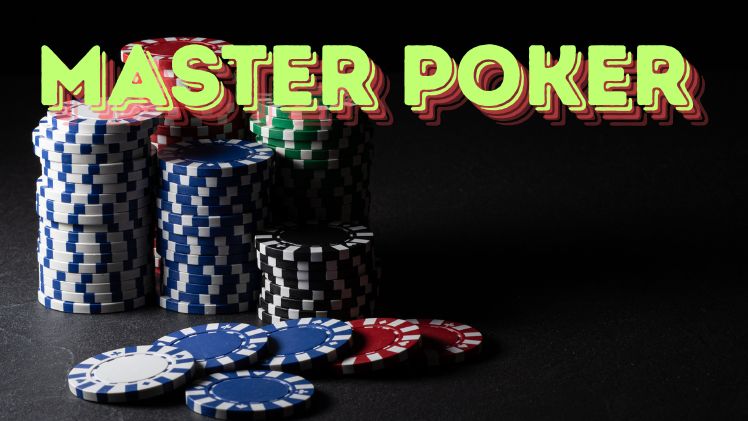 Becoming a master poker player requires more than luck or intuition — it demands a solid, well-thought-out strategy. Every great player in poker history built their success on a foundation of discipline, analysis, and adaptability. To dominate at the tables, you need more than just knowing when to call, fold, or raise; you must understand why you’re making those moves. Developing the perfect poker strategy is about combining logic, psychology, and experience into one seamless approach that works under pressure.
Becoming a master poker player requires more than luck or intuition — it demands a solid, well-thought-out strategy. Every great player in poker history built their success on a foundation of discipline, analysis, and adaptability. To dominate at the tables, you need more than just knowing when to call, fold, or raise; you must understand why you’re making those moves. Developing the perfect poker strategy is about combining logic, psychology, and experience into one seamless approach that works under pressure.
Understand the Core Fundamentals of Poker Strategy
Before diving into advanced tactics, you must https://masterpoker8.com/ first master the fundamentals. Understanding hand rankings, pot odds, position, and bet sizing is crucial. These basics serve as the backbone of your overall strategy. Without a solid foundation, you’ll find it hard to make consistent decisions in more complex scenarios. Great poker strategy starts with mastering the essentials and building upon them step by step.
Learn the Power of Position
Position is one of the most valuable advantages in poker. Playing in position — especially when you act after your opponents — gives you crucial information that can shape your decisions. You can control the size of the pot, extract more value from strong hands, or bluff more effectively. Always be aware of your position and adjust your strategy accordingly. Master poker players use position as a weapon to maximize profits and minimize losses.
Balance Aggression and Patience
A perfect poker strategy requires a balance between aggression and patience. Playing too passively means missing opportunities, while being overly aggressive can lead to unnecessary risks. The best players know when to push and when to wait. Controlled aggression — betting and raising with calculated purpose — keeps opponents guessing and prevents them from reading your game easily. Patience ensures you only commit your chips when the odds are truly in your favor.
Adapt Your Strategy to Different Opponents
No two poker games are ever the same. A strategy that works against loose players might fail against tight, disciplined ones. Observe your opponents carefully — how they bet, react to bluffs, and handle pressure. Adjust your strategy based on their weaknesses. A master poker player constantly analyzes and adapts, turning every session into a lesson in human behavior. Flexibility is the key to long-term success at any poker table.
Use Mathematics to Make Smarter Decisions
Poker is a game of probabilities as much as it is of psychology. Understanding pot odds, implied odds, and expected value can give you a significant edge. These calculations help you determine whether a call, fold, or raise is profitable in the long run. Master poker players rely on numbers to eliminate emotion from their decisions. The math doesn’t lie — and when combined with strategic thinking, it becomes one of your most powerful tools.
Master the Art of Bluffing
Bluffing is one of poker’s most iconic strategies, but it must be used with precision. Bluff too often, and opponents will catch on; bluff too rarely, and you’ll become predictable. The perfect bluff is about timing, table image, and reading your opponents’ tendencies. A true master knows when to represent strength and when to back off. Remember, bluffing isn’t about lying — it’s about telling a believable story through your bets.
Protect Your Bankroll with Smart Management
Even the best strategy fails without proper bankroll management. Knowing how much to risk in each game protects you from emotional and financial burnout. Set strict limits, stick to stakes you can afford, and avoid chasing losses. A disciplined bankroll strategy allows you to play your best without pressure or fear. Over time, this approach helps you stay consistent and confident at any level of competition.
Review and Learn from Every Game
The most successful poker players don’t just play — they study their own performance. After every session, review your hands, analyze your decisions, and identify mistakes. Look for patterns that reveal leaks in your strategy. Learning from your losses is one of the fastest ways to grow as a player. The perfect strategy is never truly finished; it evolves through constant reflection and refinement.
Train Your Mind for Focus and Emotional Control
No strategy will work if your emotions take over. Mental discipline is essential for applying your strategy consistently. Practice mindfulness and stress management to stay calm under pressure. Avoid tilt, stay focused on logic, and don’t let a single bad hand ruin your mindset. Master poker players are emotionally resilient — they understand that staying composed is just as important as making the right move.
Keep Evolving with the Game
Poker is constantly evolving, with new strategies and playing styles emerging all the time. Stay updated by studying professional games, reading strategy materials, and discussing hands with other experienced players. The more knowledge you absorb, the more adaptable and strategic you’ll become. A true pokermaster never stops learning — they refine, improve, and adjust as the game changes.
Conclusion
Developing the perfect strategy to master poker games is a lifelong pursuit. It’s not just about cards or luck; it’s about understanding the game’s logic, adapting to opponents, and maintaining emotional balance. Combine solid fundamentals, smart bankroll management, and continuous learning to craft a strategy that fits your style and strengths. With patience, focus, and persistence, you can rise above the competition and truly master the art of poker.
